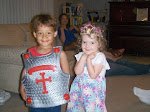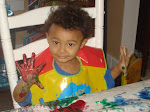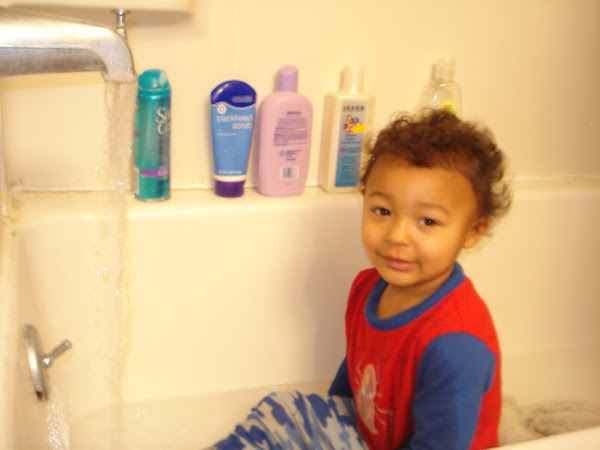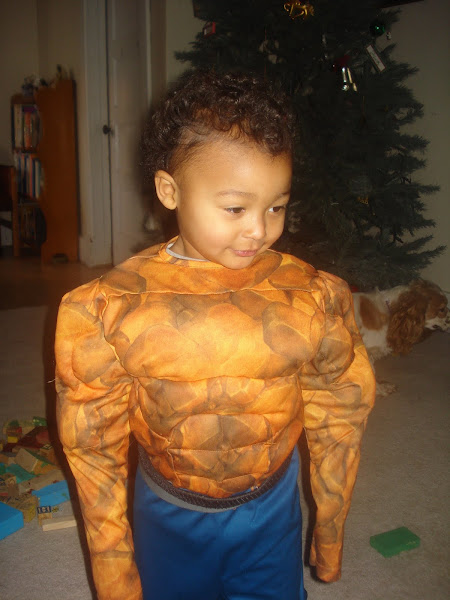Boys and Guns: Okay to Play?
“Bang, bang, you’re dead!” For most of us, hearing such threats from a preschool boy is unsettling to say the least. But for Marjan Wilkes, a veteran California preschool teacher, such pretend play among her 4-year-old students is par for the course. "I might say ‘Aaargg’ and announce ‘I'm dead’," says Wilkes. She clarifies: “They know that I am pretending, and by joining in, I send the message that I know they are pretending, too.”In the world of hot parenting topics, boys and imaginary gunplay ranks at the top. In a culture already filled with violent video games, TV programs and images of a real war, it can be unnerving to see an innocent child pretending to kill someone. Yet no study has yet linked pretend gunplay to future violent behavior, and most child experts agree that by forbidding gunplay entirely, parents give it far more power and will probably drive it underground.
Assuming you’re willing to take their word for it, what should you do? How can you allow your kids to “experiment” and use their imagination, guns blazing, without losing your cool? Here are a few tips:
Shaming Is Never Helpful
Despite our potential discomfort, we must be careful in how we deal with boys who want to play with pretend guns. “The last thing you want to do is shame your child – because that leads boys to mask their feelings and act with false bravado,” warns William Pollack, Ph.D., author of Real Boys. Instead, ask open-ended questions about the gunplay, and even play along to better understand your child’s perspective.
Despite our potential discomfort, we must be careful in how we deal with boys who want to play with pretend guns. “The last thing you want to do is shame your child – because that leads boys to mask their feelings and act with false bravado,” warns William Pollack, Ph.D., author of Real Boys. Instead, ask open-ended questions about the gunplay, and even play along to better understand your child’s perspective.
Make Decisions Together
If your child’s gunplay is making you or another child uncomfortable, reflect on your feelings calmly. Try saying, “I know you’re having fun with your pretend play, but I feel a little scared by guns. Real guns can kill and I feel afraid when you point your finger at me like that.” If you choose to limit gunplay, invite your boy to participate in the process.
If your child’s gunplay is making you or another child uncomfortable, reflect on your feelings calmly. Try saying, “I know you’re having fun with your pretend play, but I feel a little scared by guns. Real guns can kill and I feel afraid when you point your finger at me like that.” If you choose to limit gunplay, invite your boy to participate in the process.
Use Props That Have Multiple Uses
If possible, avoid realistic commercial toy guns. If your child wants to experiment with gunplay, try using popsicle sticks, rolled up newspaper, or any prop that might just as easily transform into a sword, thermometer, microphone, or baton. Gunplay should be just one part of a broad repertoire of play possibilities.
If possible, avoid realistic commercial toy guns. If your child wants to experiment with gunplay, try using popsicle sticks, rolled up newspaper, or any prop that might just as easily transform into a sword, thermometer, microphone, or baton. Gunplay should be just one part of a broad repertoire of play possibilities.
Clarify Your Values
A child participating in gunplay is usually yearning to understand power in relationships. By killing the “bad guys,” he can, in his mind, exert some control over his world. “Model ways of problem solving that are respectful of all the parties concerned, and that are not hurtful either physically or emotionally,” says Wilkes. “Talk about what you can do to promote a more peaceful culture.”
A child participating in gunplay is usually yearning to understand power in relationships. By killing the “bad guys,” he can, in his mind, exert some control over his world. “Model ways of problem solving that are respectful of all the parties concerned, and that are not hurtful either physically or emotionally,” says Wilkes. “Talk about what you can do to promote a more peaceful culture.”
Most of all, take a deep breath and realize this is a stage, like any other. It doesn’t mean your child is destined for a life of crime. Curiosity and vulnerability often lie underneath our sons’ “Bang, Bang” bravado. This may be helpful to remember next time there’s a finger pointed in your direction.























No comments:
Post a Comment